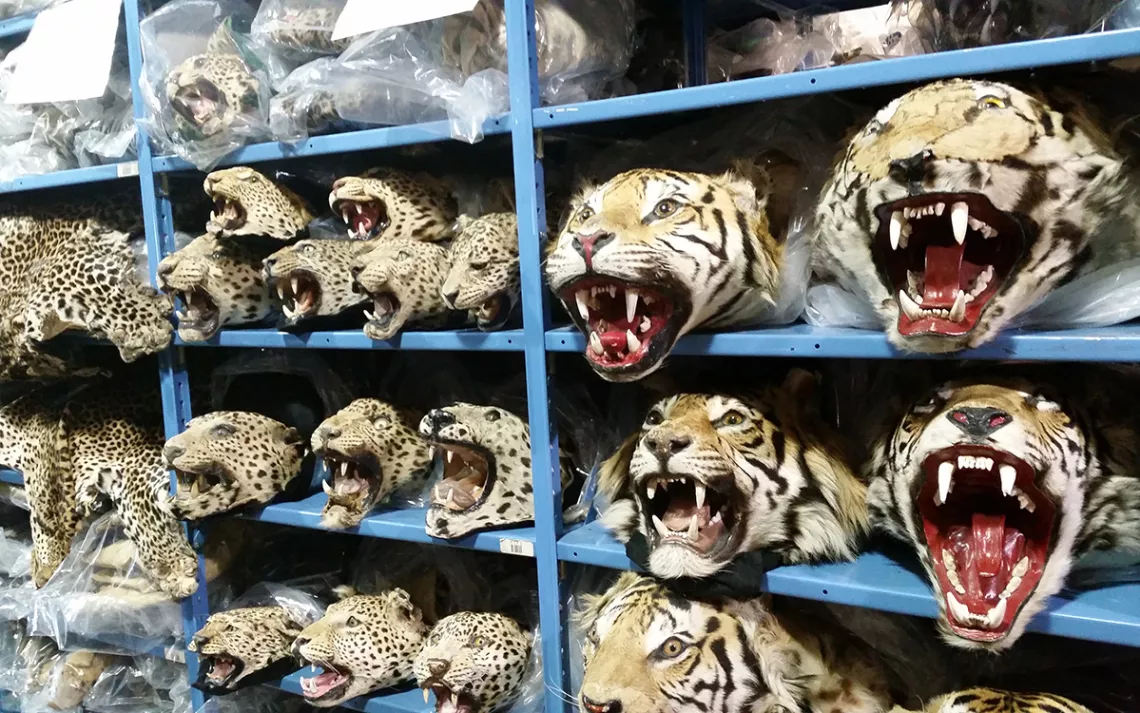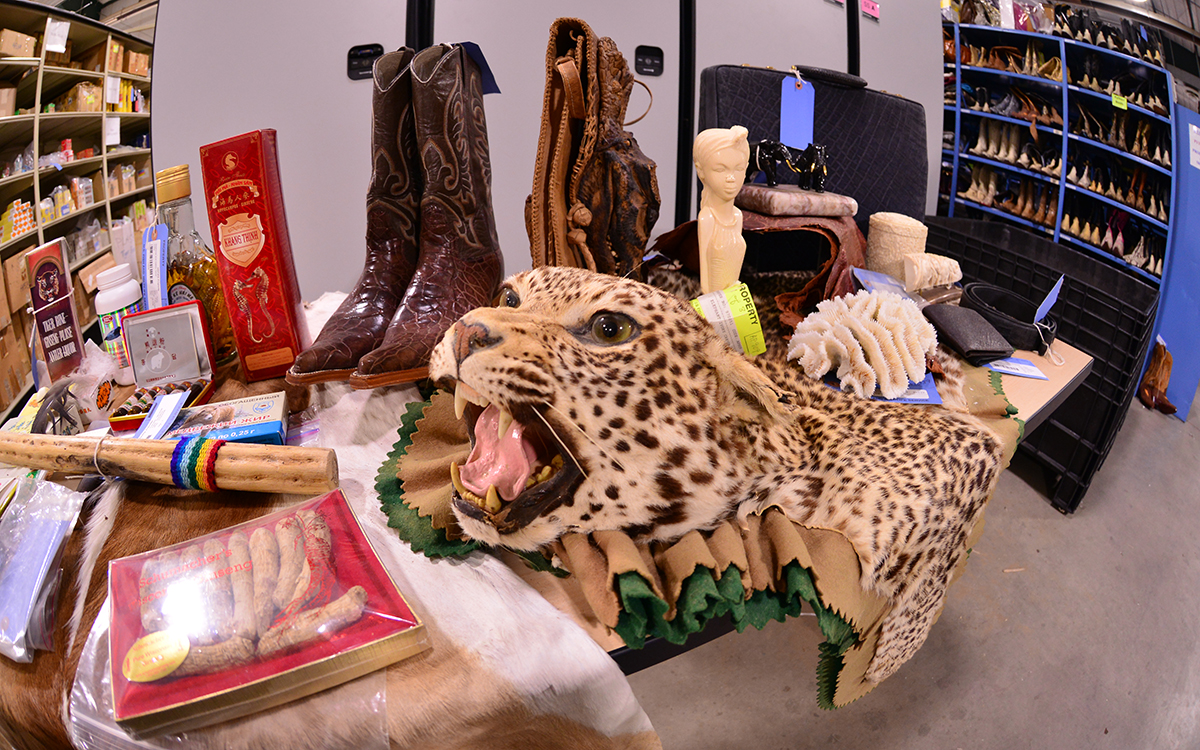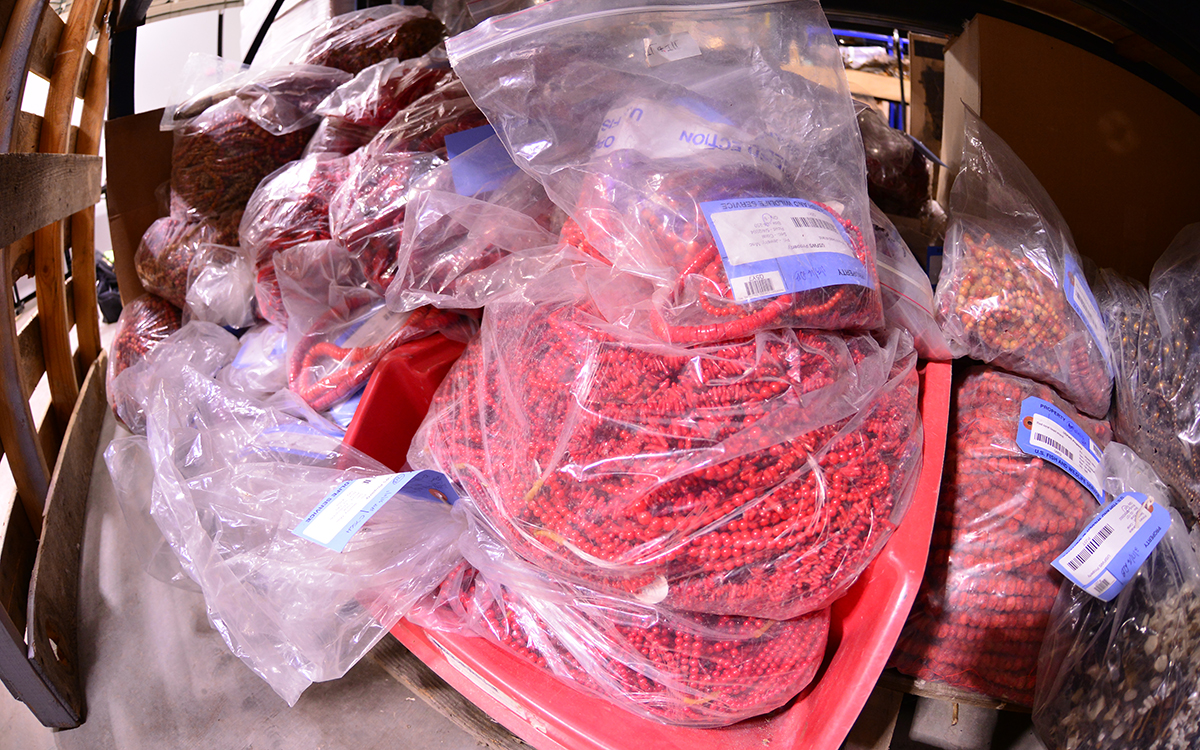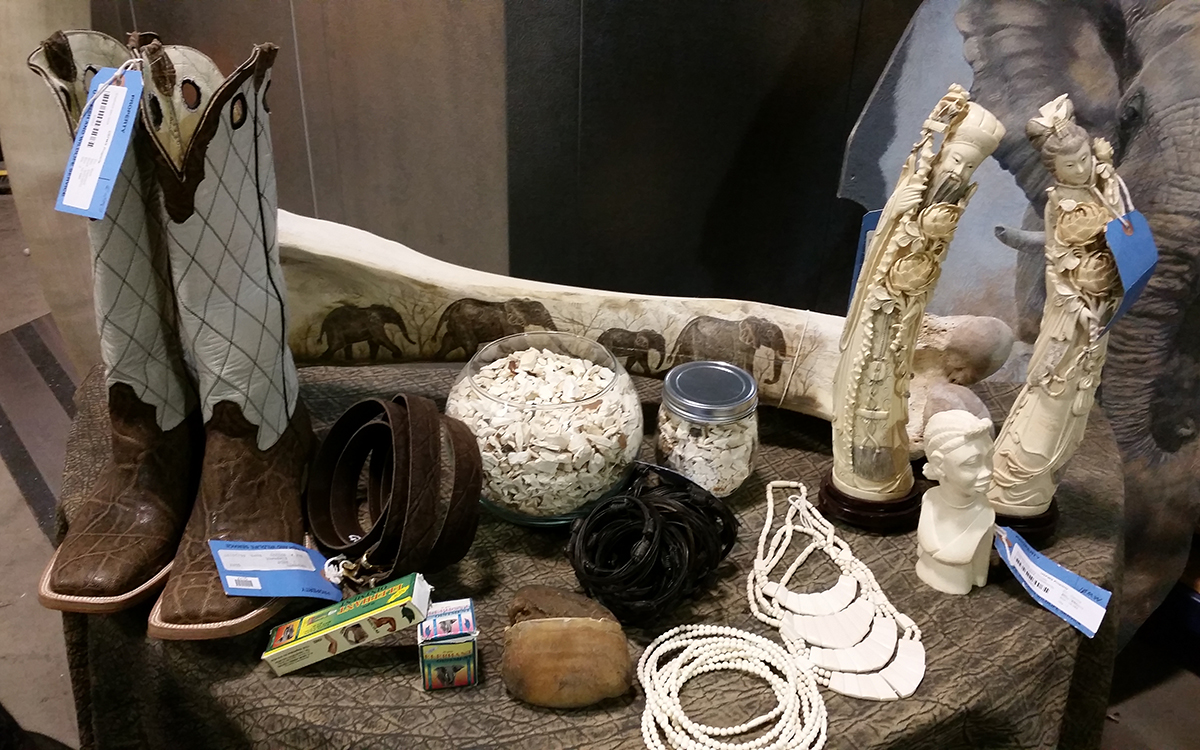What to Do if You Witness Wildlife Crime While Traveling
6 steps tourists can take to curb illegal activity

Courtesy of Ryan Moehring/USFWS
Kim Carson Cianciola, an insurance subrogation specialist out of Englewood, Colorado, was appalled when she spotted jaguar and tiger cubs chained within a tent in the middle of a marketplace while on vacation in Playa del Carmen, Mexico. For a few bucks, tourists could get a snap with these young big cats.
Cianciola didn't believe what she was seeing could be legal, but she didn't know what to do about it. “I was so furious and upset when I saw that,” she says. “The little tiger cub was just looking at me, and the jaguar cub looked so sad, and there was nothing I could do about it.”
While traveling abroad, tourists may witness wildlife crime and abuses on many fronts, including at restaurants and in local shops. Travelers don’t have to feel helpless, however. Here are some tips from representatives at the US Fish and Wildlife Service (USFWS) and the nongovernmental organization TRAFFIC, which specializes in the wildlife trade on a global level.
Know Before You Go
“I'm sure the overwhelming majority of tourists don't wish to encourage illegal or questionable wildlife trade, but there are a number of ways in which they may inadvertently do so,” says Richard Thomas, global communications coordinator at TRAFFIC.
For instance, many tourists may know that wildlife products like ivory are a big no-no but might not be aware that certain species of shell like the queen conch—widely harvested in the Caribbean—are also protected by international law, says Thomas. Another example of an item illegally sold in the Caribbean is the coral necklace, says Christina Meister, national public affairs specialist with USFWS.
However, not all distasteful wildlife activity is illegal. That situation with the two big cat cubs, while no doubt unpleasant for Cianciola to witness, could have been legal in Mexico, depending on the origin of the cubs. Because laws and regulations (as well as at-risk wildlife species) vary by region and country, it’s important to research the area you’re visiting beforehand, says Meister. You can do so by visiting the Convention on International Trade in Endangered Species of Wild Flora and Fauna’s (CITES) website. Meister says you can also call or email USFWS ahead of your trip with any specific questions or concerns: 1-844-FWS-TIPS (397-8477) or fws_tips@fws.gov.
Trust Your Gut and Ask Questions
So you’ve reached your vacation destination and something makes you feel uncomfortable. What should you do? “We usually tell people the best thing to do is be situationally aware and trust their guts,” says Meister.
If you think you’ve encountered questionable wildlife activity and you feel comfortable doing so, ask the vendor questions like “Do you have the paperwork for this?” and “Where did this come from?” Meister says tourists most frequently encounter illegal wildlife activity at restaurants and shops and adds that it might not always “look” like crime. To illustrate this point, she uses an example of an elderly woman on the corner selling coral jewelry.
Also, consider where animals originated and where they may end up. “A slow loris used as a photo prop is doubtless sourced from the wild, probably snatched from its mother and having had its teeth removed,” says Thomas. “Elephants used for trekking may be wild sourced and beaten into submission before they enter service; what happens to a lion cub once it grows too big for petting?”

Variety of illegal items for sale | Courtesy of Rachel Kramer
Gather Details for Authorities
Once you decide that you’ve encountered a potential wildlife crime, collect as many details as you can. The more facts you can include in your report—this includes information like license plate numbers, time of day, exact location, and a description of the animals and people—the better. “Just those little details can help law enforcement officials,” says Meister.

Monkey seized in Spain during Operation Thunderbird | Courtesy of INTERPOL
Be Safe and Discreet
Although reporting wildlife crime is important, never do anything to jeopardize your own safety. This may mean reporting the crime when you get home, and that's OK. “Slightly older information is better than none at all . . . it all helps to build up the overall picture of wildlife markets,” says Thomas. “Clearly, information that is actionable needs to come in as soon as possible, but the issue of personal safety is critical.”
Meister adds that aside from asking the basic questions mentioned above, tourists should resist confronting anyone they suspect may be involved in wildlife crime. “I’d rather leave that up to local law enforcement,” she says.

Coral necklaces | Courtesy of Rachel Kramer
Photograph the Scene (or Don’t)
You can also take photos if you feel comfortable doing so. “I wish that I’d taken a bunch of pictures, but I was so upset,” Cianciola said of her brush with big cat photo tourism in Mexico.
Both Meister and Thomas warn that vendors might not take kindly to photos, so if you decide to document the scene, take care. “Photos are obviously very useful as they help confirm species identification and potentially can be counted, but I'd urge caution in taking them,” says Thomas. “The overriding consideration must be personal safety, first and foremost.”

Courtesy of Ryan Moehring/USFWS
Finally, Report the Incident
There are a number of ways to report wildlife crime while abroad:
1. Download and use Wildlife Witness, an app from TRAFFIC available on Apple and Android devices. “All such reports are analyzed by a specialist in TRAFFIC and we pass on all credible reports to appropriate authorities,” says Thomas. During the 2017–18 period, the organization received 268 submissions from 159 users in relation to 156 unique locations across nine countries in Southeast Asia, says Thomas.
2. Call or email USFWS’s 24-hour wildlife hotline: 1-844-FWS-TIPS (397-8477) or fws_tips@fws.gov. According to the USFWS website, you can call anonymously or work with officers as a confidential informant. While the Fish and Wildlife Service may not have jurisdiction in the country you visited, the information you provide may help with a larger international or ongoing investigation, says Meister.
3. Contact local authorities or nongovernmental organizations yourself. This will require research on your part, but you can start by looking for local environment departments or ministries and local nonprofit organizations specializing in wildlife rescue.
 The Magazine of The Sierra Club
The Magazine of The Sierra Club



